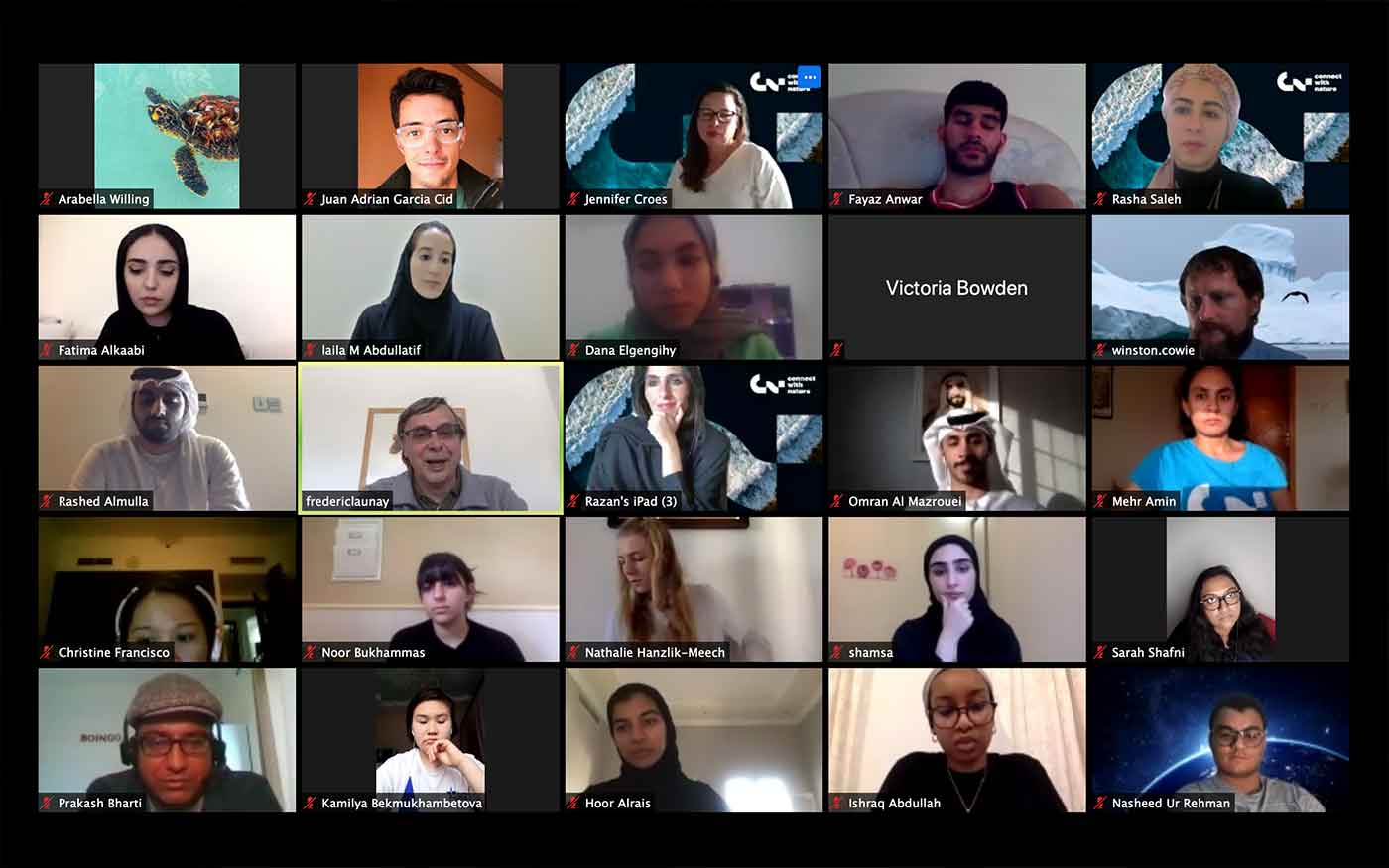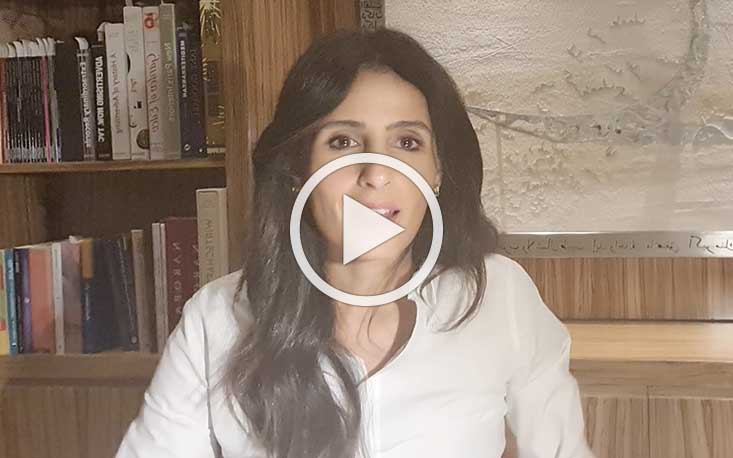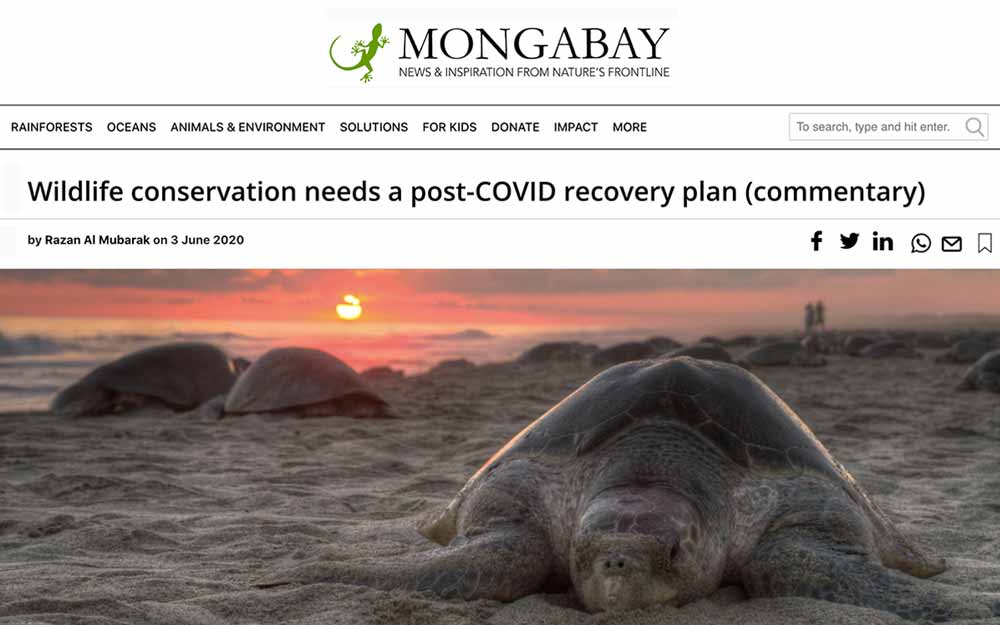Razan Al Mubarak's vision for the IUCN is built on a fresh, energetic commitment to working closely with all constituencies, especially youth and local communities. To that end, Ms Al Mubarak recently met with more than 225 young conservationists from the United Arab Emirates for an interactive dialogue on the intersection of politics and conservation - and how to better protect our planet and ourselves from future pandemics.
In an op-ed in Gulf News, Ms Al Mubarak wrote: “It was inspiring to see that during this unprecedented pause brought on by the pandemic, young people from across the UAE understand that environmental issues are intrinsically linked to our own health and well-being; and the COVID-19 pandemic presents an opportunity to learn from our mistakes and press the 'reset button'.”
Hosted by Connect with Nature, the conversation was part of the Youth Circle Series, a program developed to empower the next generation of conservation leaders, co-founded by Emirates Nature-WWF, The Environment Agency-Abu Dhabi and the International Fund for Houbara Conservation.


